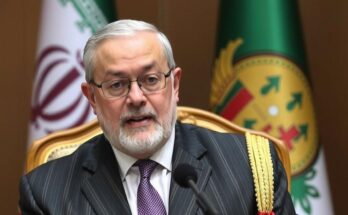Albania is to receive kamikaze drones from Turkey, confirmed by Prime Minister Edi Rama during Turkish President Recep Tayyip Erdogan’s visit. The drones symbolize enhanced defense capabilities amidst regional tensions, particularly post-Russia’s invasion of Ukraine. Concurrently, Erdogan inaugurated a major mosque in Tirana to strengthen bilateral ties, while both leaders discussed regional cooperation and condemned violence in the Israel-Hamas conflict.
Albania is set to receive a significant number of kamikaze drones from Turkey, as confirmed by Prime Minister Edi Rama during a joint news conference following a one-day visit by Turkish President Recep Tayyip Erdogan. Rama highlighted this acquisition as a gift from Turkey, intended to convey that Albania possesses strong defenses, stating, “It is a present that comes as a strong message from the Republic of Turkey that Albania is unhittable.” These drones, known as loitering munitions, operate by flying toward a target before descending rapidly and detonating on impact. However, a government spokesperson was unable to provide further specifics on the quantity or model of the drones. Notably, Prime Minister Rama emphasized that obtaining these drones does not indicate an intention for Albania to conduct aggressive actions against other nations. The decision to modernize military capabilities is a response shared by several countries in the Western Balkans, especially after the geopolitical shifts following Russia’s invasion of Ukraine in 2022. Additionally, Albania and Turkey, both NATO allies, have previously established a fleet of Turkish Bayraktar reconnaissance and attack drones in Albania. During President Erdogan’s visit, he inaugurated the Namazgah mosque in Tirana, which features 50-meter-high minarets and represents one of the largest mosques in the Balkans. This visit served as an opportunity to reinforce bilateral relations and explore regional cooperative ventures in agriculture and education. Erdogan stressed the importance of aiming to double bilateral trade to €2 billion. In his remarks regarding regional unrest, Erdogan condemned the ongoing conflict between Israel and Hamas in Gaza, labeling it a “genocide” and asserting the necessity for a ceasefire to enable humanitarian assistance. Similarly, Rama also advocated for a cessation of hostilities but expressed a more tempered perspective regarding Hamas, stating that “Hamas and any other source of terror have no place in a peaceful future of two sovereign states, Israel and Palestine.” The Namazgah mosque’s construction, initiated in 2015 with funding exceeding €30 million from Turkey’s Diyanet organization, marks a commitment to fostering Islamic ties in the region. Although its construction was completed over a year ago, the formal inauguration was delayed due to concerns regarding the influence of the Fetullah Terrorist Organization (FETO), which Turkey accuses of orchestrating a failed coup in 2016. An accord ensures that Turkey’s Diyanet will appoint representatives to the mosque’s governing body. The mosque, which accommodates 8,000 individuals and includes a cultural center, is located near Albania’s parliament and various religious landmarks. With Sunni Muslims constituting nearly 46% and Bektashi Muslims at 5% of Albania’s population, alongside 8% Catholics and 7% Orthodox Christians, the country is recognized for maintaining harmonious inter-religious relations amidst its diverse demographics.
The article discusses Albania’s recent defense upgrade, highlighting the acquisition of kamikaze drones from Turkey as part of broader military modernization efforts in the Western Balkans following geopolitical tensions in Europe. The inauguration of a significant mosque also underscores the strengthening of Albania’s ties with Turkey, a key partner within NATO. The context of Turkey’s influence in Albania, amid regional security concerns, is pivotal for understanding the bilateral relationship and the strategic motivations behind these actions. Additionally, the discussion surrounding the Israel-Hamas conflict illustrates regional diplomatic considerations affecting both nations.
In summary, Albania’s acquisition of kamikaze drones from Turkey reflects a strategic response to regional security dynamics, particularly after the Ukraine crisis. This military enhancement is complemented by efforts to bolster economic and cooperative ties with Turkey, as evidenced by the inauguration of the Namazgah mosque. Both nations seek to strengthen their relationship through increased trade and shared diplomatic initiatives, while also addressing pressing regional issues such as the Israel-Hamas conflict. Albania’s commitment to maintaining peace amidst its diverse religious landscape remains a vital component of its national identity.
Original Source: www.ekathimerini.com




